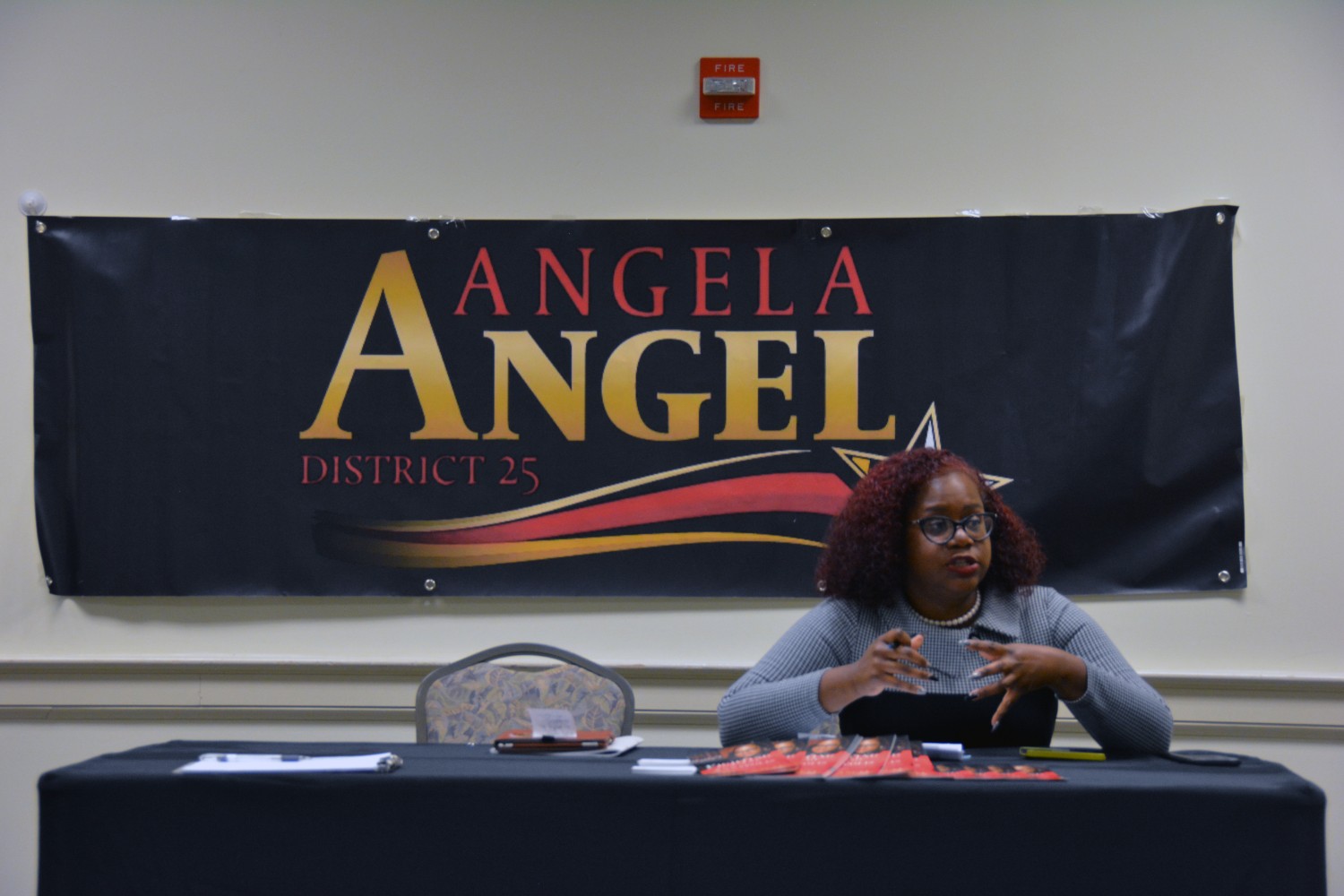University of Maryland students, in collaboration with state Del. Angela Angel (D-Prince George’s), presented a proposed piece of legislation Monday focused on the handling of hate crimes and hate bias incidents at public universities throughout Maryland.
The bill would mandate public institutions of higher education in this state to develop more robust systems for reporting and documenting on-campus hate crimes and hate bias incidents.
This comes in the wake of the murder of 2nd Lt. Richard Collins, a black Bowie State University student who was fatally stabbed on this university’s campus in May. Sean Urbanski, a white former student at this university, is awaiting trial on murder and hate crime charges in Collins’ death.
[Read more: Trial delayed 6 months for former UMD student charged in Richard Collins’ murder]
“What we’ve seen, as with Lt. Richard Collins and his death, is the fact that when you have things that are boiling up on campuses, and they erupt into acts of violence, the community needs to feel safe. It needs to feel heard,” Angel said.
Angel said that Collins’ death, along with the spike in hate bias incidents on this campus throughout the past year, motivated her to work with ProtectUMD, a coalition of 25 student groups that advocates for marginalized populations at this university, to draft the bill.
During the 2016-17 academic year at this university, a noose was found hanging in a fraternity house, and white nationalist posters were reported across the campus on five occasions.
In addition, university spokeswoman Katie Lawson told The Diamondback on Dec. 8 that 27 hate bias incidents were reported on the campus during the fall 2017 semester, including several instances of swastikas drawn or spray-painted on campus property.
[Read more: After an increase in hate bias incidents, UMD announces new response protocol]
“When [the students] were describing what was happening, as a legislator, my first mind goes to, ‘OK, how do we begin to help them?'” she said.
The requirements would include detailed physical and online records of incidents and their resolutions, in part “so that we, as the General Assembly, can begin to understand what’s happening on the campuses,” Angel said.
Angel, along with members of ProtectUMD, presented the bill at an on-campus gathering in Stamp Student Union. About 20 students, alumni and community members attended the event.
Angel said she thinks the documentation and tracking of hate incidents on campuses will help increase governmental understanding and provide the basis for potential future legislation.
“Right now there is a cultural and diversity report that is done, but hate crimes and these types of issues [are] kind of a blurb and it’s a synopsis,” Angel said. “That’s not gonna cut it, now that we know that there are a lot of things going on on these campuses.”
In addition, the bill would require universities to provide an opt-in notification system that would send text or email alerts to students each time a suspected hate crime or bias incident occurs.
Many of the documentation requirements that would be imposed by the bill are already being met by this university, Angel said. For example, the bill would require all public universities to have their own “bias coordinator,” an element inspired by this university, which announced in November it would hire a hate bias response coordinator.
Yanet Amanuel, an alumna of this university and a legislative intern for Angel, said requiring documentation of the resolutions to bias incidents is one of the most important aspects of the bill. Amanuel, who joined ProtectUMD as a student and remains involved with the coalition, worked closely with Angel to ensure that student concerns and observations were addressed in the bill.
“A lot of the reason we feel uneasy is that we don’t know what happens in the follow-up of these incidents,” Amanuel said. “So you’ll hear about the noose, but not what happened after the noose. We don’t know if the guy’s still on campus, [if] he’s the kid sitting next to you in class, and that’s kind of the uneasiness that you have.”
The bill would also require universities to institute mandatory first-year cultural diversity and hate crime prevention training.
John Wambach, an alumnus of this university who is involved with ProtectUMD and attended Monday night’s event, said he was happy that the bill would institute mechanisms for reporting and documenting hate bias incidents through universities themselves, rather than only through word of mouth and local police departments.
“It feels like it legitimizes it a little bit more,” he said.
Angelica Ceballos, a junior communication major and president of this university’s NAACP chapter, agreed with Wambach’s view.
“This bill, in a way, gives me hope,” Ceballos said.
She added that she expects the increased documentation and reporting of hate incidents will ease students’ minds because “to feel safe, [you need to] know that there’s someone out there that cares about the situation that you’re going through.”
The bill is still in draft form, Angel said. Once it is finalized, it will need to be passed through both the House of Delegates and the Senate before moving to the desk of Gov. Larry Hogan. If the bill is passed, Angel said she hopes it will go into effect by July 1.
Angel said that despite the charged racial and political climate that prompted the drafting of the bill, she is optimistic for the future.
“I think what we’ll look back and see is that out of this dark period emerges something new and good,” she said. “That’s my hope. Maybe that’s wishful thinking, but the whole point about wishful thinking is we put action behind it, and that’s what this bill does.”
CORRECTION: Due to an editing error, a previous version of this story misspelled John Wambach’s last name. This article has been updated.



